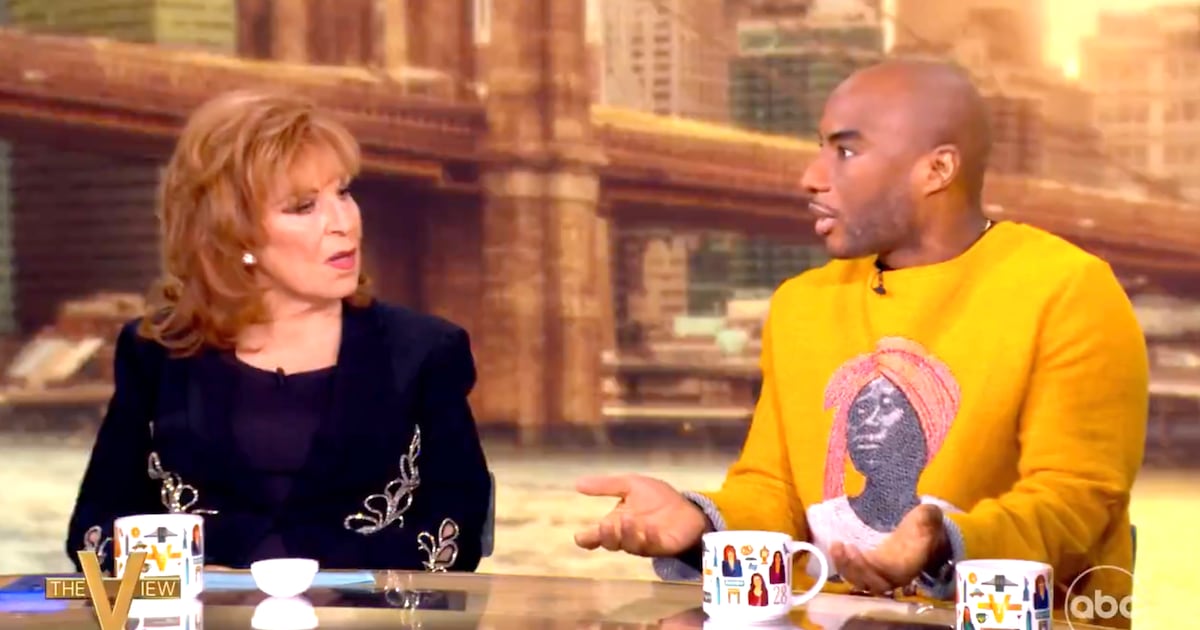Not long after Elvin Daniel joined the National Rifle Association, his sister, Zina, was shot to death by her husband. She was 42 years old and in the process of a divorce on the fall day last year when her husband, Radcliffe Haughton Jr., an ex-Marine, showed up at the Azana Salon and Spa in Brookfield, Wisconsin, with a loaded .40-caliber semiautomatic pistol.

Nothing could have prepared Daniel and the two daughters Zina left behind for the loss. But her violent death wasn’t a complete surprise. Earlier that month, Haughton drove to the suburban-Milwaukee beauty parlor where his wife worked and slashed her tires. He was arrested, and Zina filed for a restraining order. At the court hearing that followed, she told the judge: “I love my daughter. I loved my husband. I never wanted her to see him taken away.” To her husband, she said: “But things have gotten so bad, Rad. I just, we need to separate. We need a course before you hurt me. I don’t want to die. I just don’t want to die.”
Days later, Houghton killed his wife and shot six other women in the spa, killing two of them with shots to the head and neck, before finally shooting himself dead. The couple’s older daughter, Yasmeen, was in the spa and witnessed the events. The day the restraining order was issued, Houghton wrote a plea on his Facebook page. “Need to get out of Wisconsin, HELP…,” he wrote. The Internet did not help him escape the nightmare of his broken marriage, but it did provide, for $500 cash and no questions asked, the tool of his destruction.
ADVERTISEMENT
Houghton found his gun on Armslist.com, the Internet’s “firearms marketplace” that, in one three-month period earlier this year, hosted more than 170,000 ads looking to pair buyers with sellers. Elvin Daniel calls it “a dating service” for firearms. It’s also become a reliable and discreet replacement for the seedy pawnshops of yore. According to a New York Times investigation, 94 percent of Armslist sellers are private, unlicensed dealers who are not legally bound to conduct background checks. Sellers offer such perks as “no questions asked” and “no paperwork,” while the site provides users the protection of anonymity. Despite the restraining order against him, Houghton bought his gun and three magazines on Saturday, October 20 2012, in a suburban McDonald’s parking lot. On Sunday he killed his wife and two of her co-workers.
When Sens. Joe Manchin (D-WV) and Pat Toomey (R-PA) presented a bipartisan bill to expand background checks on gun transactions last month, gun-control advocates across the country expressed a renewed sense of optimism. The measures in the bill were considered modest and had broad-based support. A CBS News–New York Times poll showed that 88 percent of voters support background checks for all gun buyers (86 percent of Republicans, 95 percent of Democrats, and 83 percent of independents). These figures are higher, but not significantly, from before the Newtown, Connecticut, shootings last December. In July 2012, GOP strategist Frank Luntz conducted a poll of National Rifle Association members, which found that 74 percent of them supported criminal background checks for any buyers. With such unusually broad-based approval, there was wide expectation that Manchin-Toomey would pass the Senate.

Those expectations underestimated the power of the NRA. At the 142nd annual NRA convention, held this weekend in Houston, the theme of the year was “stand up and fight,” and at a Friday-afternoon political rally, the group’s combative style was on full display. Speeches by executive vice president Wayne LaPierre, lobbying director Chris Cox, and several conservative politicians, including past and potential future presidential contenders, reiterated a simple point: there will be no compromises.
The inflexibility is a reassuring ideological message for some members. But in a $32 billion annual industry where bad news often translates to good times, it was also a practical promise that the lobby would do good by its patrons, many of whom donate a percentage of their proceeds to the gun lobby. (Sturm Ruger, the largest gun manufacturer in America, gives $1 to the NRA for each gun sold.) According to Forbes, legal gun sales rose 19 percent in 2012 and nearly doubled in December alone, the month of the Sandy Hook massacre.
But spend a day on the inside of the NRA convention, where more attention is paid to gun safety, care, and sport than to politics, and you can almost forget the role the organization plays, or refuses to play, in the national politics of gun control. After mass-casualty shootings—in Arizona, Colorado, and Connecticut—that haunt the national psyche, the gun has come to represent chaos, madness, and disorder. But here in Houston, in the George R. Brown Convention Center’s vast air-conditioned and carpeted sanctum, the gun is a crucible of American order, responsibility, and individual sovereignty.
****
The day the NRA convention opened, a man walked into Houston’s George Bush Intercontinental Airport, shot two bullets into the ceiling, was shot in the shoulder by Homeland Security, and then shot himself in the head. His suicide note read, “The monster within me was getting stronger and while I could not save myself I could save others.”
By Saturday morning, the cold front had blown through southeast Texas, and once the winds dropped and the sun came out and warmed the streets of downtown, a great sense of calm and municipal order took hold. Mounted officers of the Houston PD straddled horses in the shade of a low tree in the corner of a parking lot as a diverse crowd of Americans wearing convention badges walked in all directions toting orange sacks filled with catalogues of antique revolvers and brochures for tactical rifles.
Elvin Daniel was in Houston with other victims of gun violence whose travel was paid for by Mayors Against Illegal Guns, the political lobby funded in large part by New York City Mayor Michael Bloomberg. Once in town, MAIG let the survivors advocate for their beliefs any way they wished, and Daniel spent most of his Saturday morning talking to people and interested journalists about his family’s story. But advocacy wasn’t his only mission. He also went shopping for his next gun and renewed the NRA membership that he bought before his sister’s death.
“I absolutely support the NRA,” Daniel said emphatically. “I need their voices. We as gun owners need their voices behind us. But we also need sensible gun laws.”
Across the street from the convention center, a small group of protesters, no more than 15, gathered with signs calling for federal action on gun control. A gray-haired woman stood at a makeshift podium and quietly read off the names of victims of gun violence. A young man who supports the NRA and enjoys public quarrels with strangers walked up and started quarreling. Houston police officers milled around and told a man dressed as the angel of death that he could carry either his sign or his plastic scythe but not both. “Local ordinances, sir.”
Inside, Clive Wilby walked the convention floor with his two sons, Ryhan and Krishna, 9 and 6. Wilby lived half his life in South Africa and the United Kingdom, and guns are one of the most cherished aspects of his life as an American immigrant. The Second Amendment is “marvelous,” he told me, the one law, above any other, that “epitomizes your freedom.” Wilby and his sons are NRA members. “I killed a bird,” Krishna told me proudly, and his older brother bragged in detail about the elk he shot at a Texas game farm with his father last year.
Wilby’s boys were polite but anxious to get to the third floor and the Pyramyd Air gun range, where kids were lined up and streaming out all weekend with multicolored ribbons earned for skills in marksmanship. One dollar bought you five pellets to shoot from an air gun of your choice—at tin cans, hanging metal discs, and, for the truly coordinated, tiny targets embedded in metal squirrels and buffalo that flipped over if you hit them square. An NRA volunteer with the Faulknerian name of Felton Corbett taught me the basics of gun safety and how to load, aim, and properly shoot a Stoeger Arms X5 Air Rifle. (”Don’t pull the trigger hard and fast. You learned that from watching too many movies,” he told me.) I wasn’t as good as most of the grade-schoolers around me, but Corbett gave me a ribbon anyway.
Wilby said he is into guns for the sporting aspects and that, even when he takes his boys hunting, 90 percent of the joy comes from simply spending time outdoors. But having grown up amid the social turmoil of Tanzania and Zimbabwe, he also appreciates the feeling of safety that comes from owning his own gun. “If an extreme situation for whatever reason happened—and it would have to be pretty extreme—I know I’d be able to defend myself and my family,” he said. “It’s an insurance policy.” At this point, as a happy immigrant, Wilby says his greatest fear is that Americans won’t realize what a gift they have in the Second Amendment. “I can’t vote here, but please, guys, don’t ruin it.”
Elvin Daniel says he is hopeful that he will help force a reintroduction of background-check legislation, and he is also ready to buy his next gun, an AR-15 rifle made by Rock River Arms. “There are people who collect train sets. There are people who collect dolls,” he said. “I enjoy collecting guns.”
Daniel is aware of the role he plays as a bridge between the NRA and advocates for gun-control legislation. In Houston, neither Daniel nor Erica Lafferty, whose mother was the principal of Sandy Hook Elementary School, had any coordination with or much use for the protesters. They have seen enough confrontation and are at a point where they simply want political action, on even the most humble scale. “It’s common sense,” Lafferty said of background checks for gun buyers. “But common sense is too hard for some people.” Wilby said that “background checks are paramount.” Daniel, a self-professed optimist who has also spent hours talking to leaders in Washington since his sister’s death, said he believes the bill will be brought forward again and that background checks, of some sort, will pass.
Before he left, I asked Daniel why he loves guns so much. “Why,” I asked him, “do you want to buy an AR-15?”
“Because I like it,” Daniel said. “I’m a responsible citizen, and I should be able to buy it if I choose to. Don’t you agree with that?”





